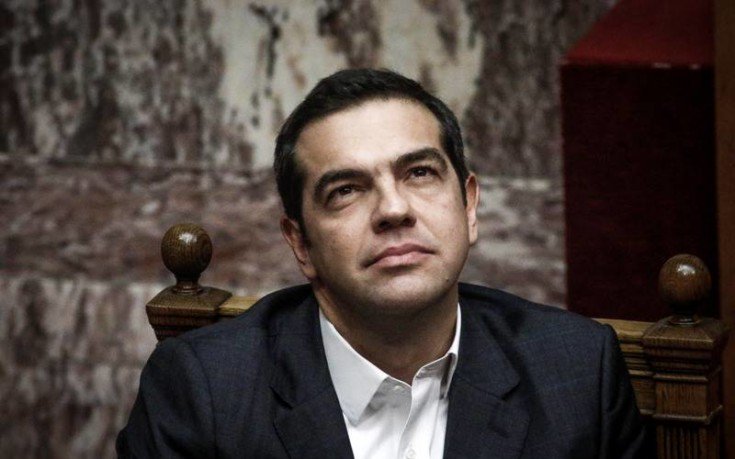A week is a long time in politics — rarely has a cliché been more suitable to describe a situation than Harold Wilson’s famous 1964 quote in the context of post-election Greece more than 50 years later.
Alexis Tsipras’s election victory was saluted by many around the world as the first time the radical Left would govern a Eurozone country; and as the beginning of a major change in the way Europe has been striving to tackle the economic crisis and its underlying structural causes. SYRIZA was expected to showcase a new paradigm for growth, one that is radically opposed to Germanic orthodoxy.
The first few days seemed to justify those who had been warning of SYRIZA as Loony Left. Incoming cabinet ministers showered the Greek public and the markets with a set of pledges that would constitute a near-complete reversal of all the changes made since the country was forced to resort to the largest bailout programmes in history. Those changes had been imposed on Greece as necessary reforms by her international creditors. In their eyes, this would be the reinstitution of the statist state that had led the country to the brink of bankruptcy; and it wouldn’t be fiscally realistic unless the country were to abandon the Eurozone and return to a national currency.
Furthermore, the new government’s polemic on the main political front, its relations with Europe and the IMF and its plans about the future of the bailout programmes, culminated in a stormy joint press conference of Eurogroup head, Jeroen Dijsselbloem, and Greece’s flamboyant new Finance Minister, Yanis Varoufakis, which highlighted a clear and dangerous rift as to the way forward.
In order to calm its European partners as well as the markets, Tsipras and Varoufakis changed their tune adopting a tone of moderation and began a European tour which is still underway at the time of print. Their reassurances of European loyalty secured some sympathetic words (no less from US President Barack Obama) for their view of alternative growth policies – for quite some time the strict “Protestant” austerity prescribed by Germany has been raising worldwide concerns about its effectiveness, anyway.
But the Greeks kept hearing from even the most sympathetic of their European partners that promises must be kept, reforms should continue as scheduled and fiscal virtue must not be compromised. And then came the less sympathetic ones…
In no uncertain terms Germany made it clear that the new Greek government is expected to remain on the path agreed with its predecessors, in terms of the country’s public finances and the reform programme that should liberalise the economy, modernise the state and put an end to Greece’s perennial fiscal black hole that is tax evasion.
Tsipras is facing a series of milestones in his strife to establish a new stability for his country.
His most urgent need is to secure a short grace period in order to prepare a complete proposal for a fresh programme that would replace the much-hated bailout schemes implemented in the last five years. The Greek government has been asking for a funding “bridge” enough to keep the country afloat until May. Next week’s Eurogroup meeting could resolve this demand either way, although Germany’s no-nonsense approach appears more likely to carry the day. Meanwhile, pressure was upped by the European Central Bank when it cancelled its acceptance of Greek bonds in return for funding of the country’s banking sector. This has increased the cost of borrowing for Greek banks and refuelled fears about liquidity despite public assurances by Tsipras’s spokesman.
In any case, sooner rather than later Tsipras will have to make the crucial decision between compromise and conflict with Greece’s creditors and partners.
The former would more or less guarantee stability; but it would entail going back on several of the pledges on the back of which he won the general election. Maintaining fiscal prudence and moving ahead with some reforms (eg. privatisation, rationalising the state apparatus, liberalising the energy and other sectors) would threaten to destabilise his government as this would go down as a sell out with the most radical parts of his own party, SYRIZA, and possibly with its coalition partner, the strongly anti-austerity right-wing Independent Greeks party. A U-turn would also conceivably undermine his popularity among many in the electorate who would be disillusioned with yet another leader.
By choosing conflict over compromise, Greece’s 40-year-old Prime Minister could hope to mobilise the country’s populist forces, both left- and right-wing; they could be persuaded to rally behind an anti-austerity agenda with thinly veiled anti-European undertones. For Tsipras this would be a break with the establishment, in line with his, and his party’s, ideological roots, even if it led the country to an hitherto unseen economic turmoil, even if it risked Greece’s Eurozone membership.
However, as part of this scenario, the Greek PM would have to tackle a political paradox: he is the first leader in Greek history who was voted in by large parts of the electorate not because they believed he would keep his promises of radicalism, but precisely the opposite, because they strongly believed he would go back on them and compromise. These people would be probably alienated if he chose to adopt a hard line towards Europe and could provide an unexpected pool for a currently numb opposition.
What is certain at this point is that Tsipras will have to negotiate an extremely fine balance. Germany appears unwavering in her crisis management prescription and will most likely call the Greek government’s bluff if Athens threatens to destabilise the whole of the Eurozone. European institutions are famous for their ability to produce viable, even if not always productive, compromise deals. It is quite likely that Tsipras will be offered such a deal; and political expediency would dictate to him to accept it and try to present it as a negotiating victory to his domestic public. The 1973 war is celebrated as a victory both in Israel and Egypt — but is Tsipras a Sadat or a Chávez?



![Greece election: End of the road for Alexis Tsipras's SYRIZA? [vid] Greece election: End of the road for Alexis Tsipras's SYRIZA? [vid]](https://serpico.gr/wp-content/uploads/2019/06/new_democracy-elections-july_2010.jpg)

